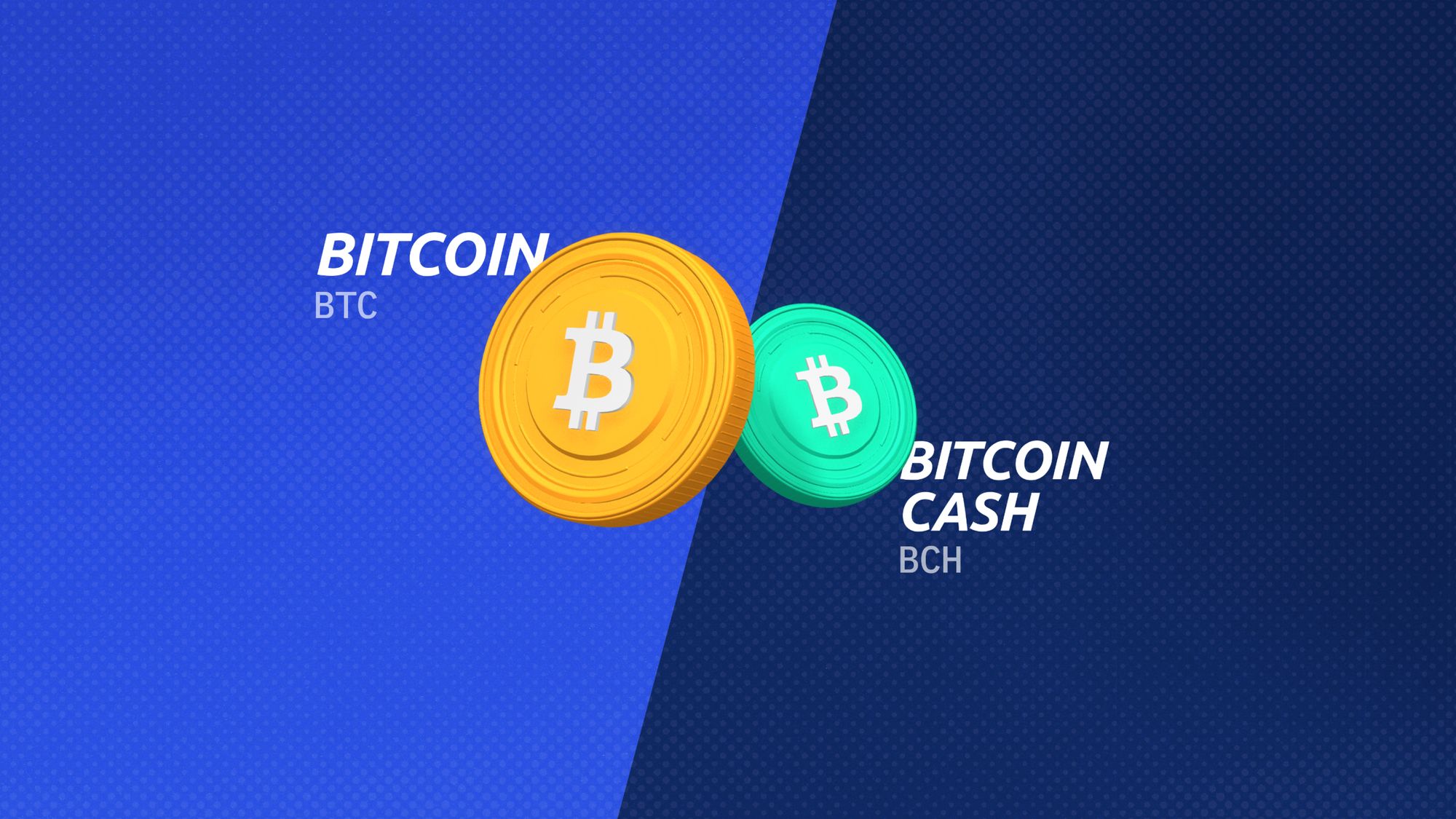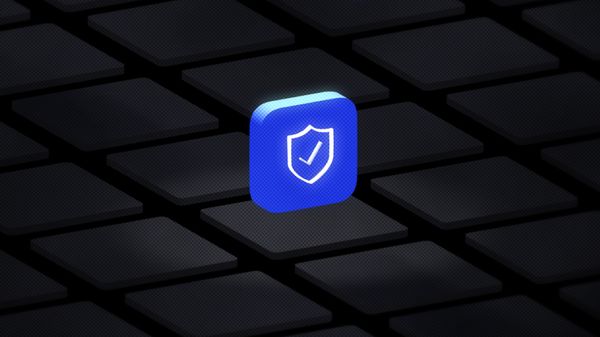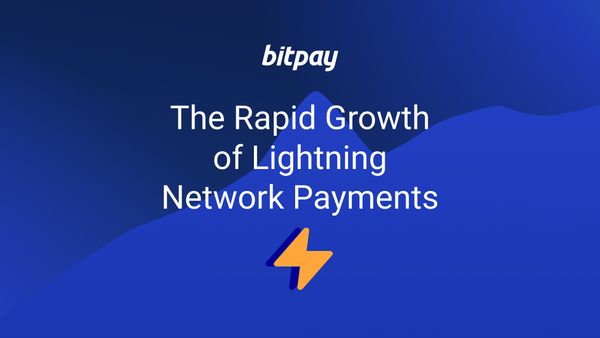Bitcoin Cash (BCH) was created in 2017 following a highly contentious move by Bitcoin network participants, which literally split the Bitcoin blockchain, in a move to remedy the growing capacity challenges faced by Bitcoin's network. The resulting hard fork led to the creation of Bitcoin Cash , which has its own blockchain and scalability specifications, including a larger block size, enabling cheaper and faster transactions. Bitcoin Cash has a transaction block size of 32MB, allowing for over 100 transactions per second, while Bitcoin can only process seven transactions per second. Bitcoin has become known more as a store-of-value investment, with its three-year ROI far outperforming that of Bitcoin Cash during the 2021 bull run. While Bitcoin Cash by itself has an edge in making everyday crypto purchases, Bitcoin's popularity and growing efficiency in payment methods via layer two solutions like the Lightning Network make it the most popular cryptocurrency by a significant margin.
In this article
- Differences between Bitcoin and Bitcoin Cash
- What makes a better investment?
- Which is best for making payments?
- The bottom line
- FAQs about Bitcoin vs Bitcoin Cash
The Bitcoin Network was humming along for its first several years of existence, letting users send or receive funds quickly and inexpensively exactly as designed. However some fundamental limitations of the network became more apparent over the years as Bitcoin’s popularity sharply increased. This led to a highly contentious move by network participants in 2017 that quite literally split not only the community, but the Bitcoin blockchain itself. In the wake of the resulting controversy, an entirely new cryptocurrency was created, Bitcoin Cash (BCH). Ahead, we’ll go into detail about the differences between Bitcoin and Bitcoin Cash and how they’re used.
What’s the difference between Bitcoin (BTC) and Bitcoin Cash (BCH)?
Bitcoin was initially conceived as a revolutionary decentralized global payments network, but as the number of Bitcoin users grew exponentially, the network struggled to keep up with the increased traffic. This is due to technologically imposed limits on the maximum amount of data each Bitcoin transaction block can contain (1MB), which has resulted in longer processing time for users.
In an attempt to remedy the network’s growing capacity challenges, in July 2017 users representing between 80-90% of Bitcoin’s computing power voted to introduce a technology called segregated witness (SegWit). SegWit would allow more Bitcoin transactions per block by removing signature data, shrinking them by as much as 65%. The move was strongly opposed by a minority group of Bitcoin miners and developers who felt it didn’t go far enough to address the network’s scalability problems. Many also believed the addition of SegWit took Bitcoin off course from pseudonymous creator Satoshi Nakamoto’s original vision, which positioned Bitcoin as a method of value exchange rather than a speculative asset.
The opposing faction submitted a rules change proposal that would increase the Bitcoin transaction block size from 1MB to 8MB, which would allow significantly more transactions per block. However, the majority of network users rejected the proposal, resulting in the first “hard fork” of the Bitcoin blockchain. This split of the original Bitcoin blockchain led to the creation of Bitcoin Cash, a new cryptocurrency with its own blockchain and its own scalability specifications. Since the hard fork, the Bitcoin Cash block size has grown to 32MB, allowing for even speedier and cheaper transactions.
At a glance: Bitcoin (BTC) vs Bitcoin Cash (BCH)
Bitcoin (BTC)
- Often held as a speculative investment; the #1 cryptocurrency used among BitPay payments
- 1MB transaction size (~7 transactions per second)
- #1 cryptocurrency by market cap (as of February 2023)
- Launched in 2009 by a pseudonymous founder
Bitcoin Cash (BCH)
- Typically held for spending; 6th most popular cryptocurrency used among BitPay payments
- 32MB transaction size (over 100 transactions per second)
- #26 cryptocurrency by market cap (as of February 2023)
- Launched in 2017 as a result of a “hard fork” of the Bitcoin blockchain
Buy, store, swap and spend Bitcoin, Bitcoin Cash and dozens of cryptocurrencies with BitPay
Which has been the better investment?
While crypto payments overall continue to grow considerably, over the years Bitcoin has become best known as a store-of-value investment, comparable to digital gold. Looking at the 2021 bull run, Bitcoin’s three-year ROI far outperformed that of Bitcoin Cash.
On September 1st, 2017, the value of 1 Bitcoin Cash (BCH) was around $400. Three years later, the value of 1 Bitcoin Cash (BCH) was around $600. So if you had bought 1 Bitcoin Cash (BCH) on September 1st, 2017 and sold it on September 1st, 2021, your return on investment would be approximately $200, or about 50%.
On September 1st, 2017, the value of 1 Bitcoin was around $4,400. Then after three years, the value of 1 Bitcoin was around $48,000. So if you had bought 1 Bitcoin on September 1st, 2017 and sold it on September 1st, 2021, your return on investment would be approximately $43,600, or about 986%
Which is better for making payments?
A blockchain network’s speed is measured in TPS, or transactions per second. The higher a blockchain’s TPS, the faster and cheaper transactions will be for users, and the more conducive its native cryptocurrency will be for spending instead of holding. Even after adopting SegWit, the Bitcoin Network is only capable of processing 7 transactions per second as of January 2023. Bitcoin Cash’s whopping 32MB block size makes it capable of processing over 100 transactions per second. This gives Bitcoin Cash a significant edge when it comes to making everyday crypto purchases. However, the addition of layer 2 solutions like the Lightning Network have made Bitcoin a much more efficient means of payment. In June 2022, BitPay added support for payments made over the Bitcoin Lightning Network. Since then, Lightning Network payments have grown considerably and show no signs of slowing.
The bottom line
Though similarly named and originating from the same blockchain and technology, Bitcoin and Bitcoin Cash are quite different when it comes to functionality. Bitcoin Cash goes a long way to solve many of the Bitcoin Network’s capacity limitations. The generous transaction block size of BCH keeps transaction fees low and enables near-instant settlement, making it an ideal cryptocurrency for spending. That said, Bitcoin remains the most popular cryptocurrency by a significant margin and is getting help from layer 2 solutions.
FAQs about Bitcoin and Bitcoin Cash
We’ve covered a fairly wide cross-section about the origins and purpose of Bitcoin Cash, but in case any questions remain, here are some common queries people often have.
Are BTC and BCH on the same blockchain?
No. Bitcoin Cash originated from a “hard fork” which split off from the Bitcoin blockchain into its own network and cryptocurrency.
Do I need two separate wallets to hold Bitcoin and Bitcoin Cash?
Some wallet applications limit you to a single cryptocurrency, but multi-asset wallet solutions like the BitPay Wallet allow users to hold Bitcoin, Bitcoin Cash and more than a dozen top coins in one place, including Litecoin (LTC), Ethereum (ETH), Dogecoin (DOGE), Shiba Inu (SHIB), XRP (XRP), ApeCoin (APE), Dai (DAI), Binance USD (BUSD), USD Coin (USDC), Wrapped Bitcoin (WBTC), Pax Dollar (USDP), Gemini Dollar (GUSD) and Euro Coin (EUROC). While you may manage all of these cryptocurrencies in one place, it is important to note that you will use separate addresses to store, send and receive Bitcoin/Bitcoin Cash payments.
Should I buy Bitcoin or Bitcoin Cash?
The answer to whether you should buy Bitcoin or Bitcoin Cash entirely depends on your goals related to cryptocurrency and appetite for risk. At this point, both are excellent cryptocurrencies for making payments or transactions. Historically, Bitcoin has had the higher ceiling, but also consistently has a higher purchasing cost.
More comparisons of popular cryptocurrencies:


